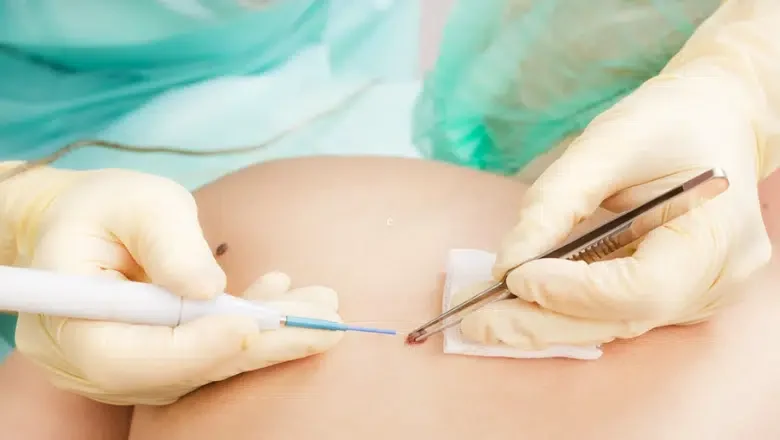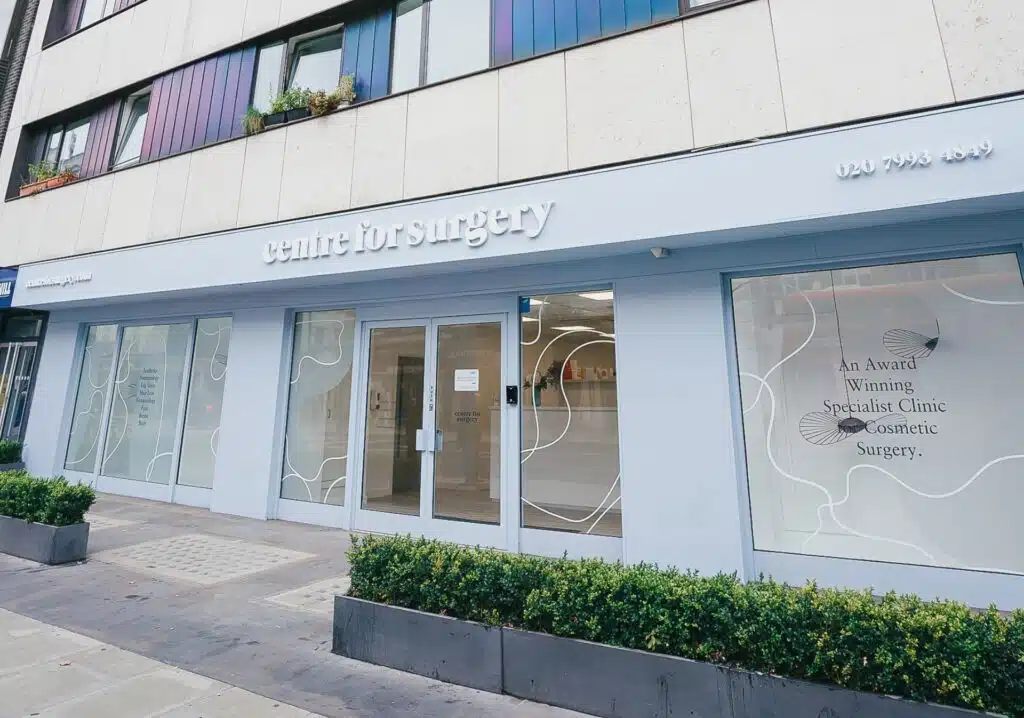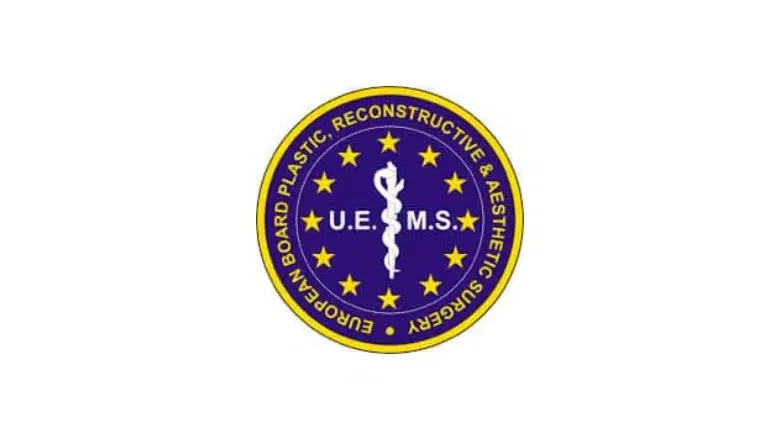Skin Cancer Surgery in London
Understanding the Symptoms of Different Skin Cancer Types
Skin cancer, a condition that can manifest anywhere on the body, is most commonly observed in areas frequently exposed to sunlight, such as the face, ears, neck, chest, arms, and hands. It’s crucial to recognise that skin cancer does not discriminate based on skin colour or tone and can affect anyone.
Each type of skin cancer presents distinct characteristics in terms of appearance and behaviour. While there are some commonalities, being aware of the specific symptoms associated with each type is vital for early detection and treatment.
Basal Cell Carcinoma (BCC)
Basal Cell Carcinoma primarily affects sun-exposed regions of the skin. The lesions associated with BCC are typically flesh-coloured, though they can range in hue from pink to brown. These lesions often have a waxy or pearly appearance and may become scaly or even bleed. A hallmark of BCC is the presence of an open sore that repeatedly heals and re-opens, indicative of this type of skin cancer.
Squamous Cell Carcinoma (SCC)
Squamous Cell Carcinoma also commonly appears in sun-exposed areas such as the face, neck, chest, arms, and hands. However, in individuals with darker skin, SCC may develop in areas not commonly exposed to the sun. The lesions can present as flat, scaling, crusting patches or as red nodules. These characteristics can serve as warning signs for this particular type of skin cancer.
Melanoma
Melanoma is known for its ability to develop within existing moles or as new lesions on the body. In men, it tends to occur on the skin of the face or trunk, while in women, it is more likely to be found on the legs. Individuals with darker skin may find melanoma on the palms, soles, or under the fingernails. Melanoma is particularly concerning due to its aggressive nature. Symptoms to watch for include changes in the size, colour, or shape of a lesion, irregular borders, a non-uniform colour, or bleeding. These changes are significant indicators of melanoma.
Other Types of Skin Cancer
While BCC, SCC, and melanoma are the most common, there are other, less frequent types of skin cancer, such as Kaposi sarcoma, Merkel cell carcinoma, and sebaceous gland carcinoma. These cancers can vary greatly in appearance, ranging from irregular patches to firm, sometimes painful or painless nodules. The variability in their presentation makes them particularly challenging to identify without professional medical evaluation.
Key Risk Factors for Skin Cancer: What to Avoid
Understanding and avoiding certain risk factors can significantly reduce the likelihood of developing skin cancer. While it’s true that anyone can be affected by skin cancer regardless of skin tone or color, there are specific factors that increase the risk:
Lighter Skin Colour
Individuals with lighter skin are more susceptible to the harmful effects of ultraviolet (UV) rays from the sun. This increased vulnerability places them at a higher risk of developing skin cancer. The lower levels of melanin in lighter skin provide less protection against UV radiation, making sun damage more likely.
History of Sunburns
A history of sunburns, especially those occurring earlier in life, is a significant risk factor for skin cancer. These sunburns cause damage to the DNA in skin cells, which can lead to cancer later in adulthood. It is crucial to understand that even a single severe sunburn can increase the risk of skin cancer.
Excessive Sunlight Exposure
Prolonged and unprotected exposure to sunlight is a major risk factor. UV rays from the sun can damage the skin, leading to skin cancer. People who spend a lot of time outdoors without adequate protection, such as sunscreen, are more vulnerable to the harmful effects of UV rays.
Presence of Moles (Naevi)
Individuals with a large number of moles, or naevi, are at an increased risk of skin cancer. Some moles, particularly atypical ones, may contain cancerous or precancerous cells. Regular monitoring of moles for any changes in size, shape, or color is essential.
Personal or Family History of Skin Cancer
A personal or family history of skin cancer significantly raises the risk. This factor indicates a potential genetic predisposition to skin cancer, making it important for individuals with this history to be vigilant about skin checks and sun protection.
Radiation Exposure
Exposure to radiation, including radiation treatments for certain medical conditions, can increase the risk of developing skin cancer. The ionizing radiation used in these treatments can damage the DNA in skin cells.
Chemical Exposure
Exposure to certain chemicals, such as arsenic, can elevate the risk of skin cancer. These chemicals can cause mutations in skin cells, leading to cancerous changes.
Understanding the Diagnosis Process for Skin Cancer
Diagnosing skin cancer involves a series of steps that begin with a thorough evaluation by a healthcare professional. This process is crucial in determining the nature of the skin lesion and planning appropriate treatment.
Initial Consultation
The first step in the diagnosis of skin cancer is a detailed consultation with your doctor. During this consultation, your doctor will inquire about your health history and any specific concerns you have about your skin. This may include questions about how long the lesion has been present, any changes you’ve noticed, and your history of sun exposure or sunburns.
Physical Examination
Following the initial discussion, your doctor will conduct a physical examination of the concerning skin lesion. They will assess its size, shape, colour, and any other distinctive features. This examination is not limited to the suspicious lesion alone; your doctor will also check the rest of your skin for any other unusual marks or moles that might indicate skin cancer.
Biopsy
If the lesion appears suspicious, a biopsy will be recommended. In this procedure, a small tissue sample is taken from the lesion and sent to a laboratory for analysis. This biopsy is a critical step in confirming whether the lesion is cancerous. The lab tests will reveal the type of skin cancer, if present, and provide guidance for the treatment plan.
Additional Tests for Advanced Cases
In cases where skin cancer is confirmed, and there’s a possibility of it spreading, further diagnostic tests may be required. These tests are particularly important for types of skin cancer that are more likely to spread, such as melanoma or squamous cell carcinoma. Your doctor might order imaging tests, such as CT or MRI scans, to examine other parts of the body and the lymph nodes. While basal cell carcinoma is less likely to spread, these additional tests are more commonly used for other, more aggressive skin cancers.
Determining the Stage of the Disease
The combination of physical examination, biopsy results, and any additional tests helps determine the stage of the skin cancer. Staging is a crucial aspect of the diagnosis as it informs the extent of the cancer and guides the treatment approach.
Treatment Options for Skin Cancer
Recovery Following Skin Cancer Surgery
Recovery after skin cancer surgery is a crucial phase, and it varies based on the type and extent of the surgery. At Centre for Surgery, we ensure that our patients are well-informed about the recovery process to facilitate a smooth and effective healing period.
Post-Surgical Care
After the surgery, patients are given detailed instructions for wound care. This includes guidance on how to clean and protect the surgical site, and information about any dressings or bandages that have been applied. It’s important to follow these instructions carefully to prevent infection and ensure optimal healing.
Pain Management
Some discomfort or pain is expected after skin cancer surgery, especially once the anaesthesia wears off. Patients are usually prescribed pain relief medications to manage this. It’s important to take these medications as directed.
Activity Restrictions
Patients are advised to limit physical activity, especially strenuous exercises, for a certain period after the surgery. This helps in preventing bleeding or increased swelling at the surgical site. The duration of this restriction varies depending on the extent of the surgery.
Monitoring for Complications
Patients should be vigilant for any signs of complications, such as increased redness, swelling, bleeding, or unusual discharge from the surgical site. If any of these occur, it’s important to contact the surgeon immediately.
Follow-up Appointments
Follow-up appointments are a critical aspect of the recovery process. These appointments allow the surgeon to monitor the healing process and address any concerns the patient may have. It’s also an opportunity to remove non-dissolvable stitches, if they were used.
Healing Time
The healing time varies depending on the size of the area treated and the type of surgical procedure performed. For minor surgeries, recovery may take a few weeks, while more extensive procedures may require several months for complete healing.
Scarring
Some level of scarring can be expected after skin cancer surgery. The extent of scarring depends on the size of the cancer removed and the individual’s healing process. Plastic surgeons at our Centre for Surgery are skilled in techniques that minimise scarring and promote better cosmetic outcomes.
Long-Term Care
Once healed, it’s important for patients to continue monitoring their skin and to protect it from excessive sun exposure. Regular follow-up visits with a dermatologist or a plastic surgeon are recommended to check for any signs of skin cancer recurrence.
Emotional Support
Recovering from skin cancer surgery can also have an emotional impact. Patients may benefit from support groups or counselling to help them cope with the changes in their appearance or concerns about cancer recurrence.
Early Detection: Key to Effective Skin Cancer Treatment
The successful treatment of skin cancer is highly dependent on early detection. If you have noticed any unusual changes in your skin or have a concerning skin lesion, it is crucial to consult a healthcare professional. At Centre for Surgery in London, we specialise in the treatment of various skin conditions, including skin cancer.
Specialist Care at Centre for Surgery
Our clinic is renowned for expertise in plastic and cosmetic surgery, making it one of the top destinations for skin cancer treatment in the UK. Our team comprises specialist plastic and cosmetic surgeons who are well-versed in diagnosing and treating different types of skin cancer.
Personalised Evaluation and Treatment
By choosing the Centre for Surgery for your skin cancer concerns, you will receive a comprehensive evaluation by a specialist plastic surgeon. Our approach is tailored to each individual, ensuring that you receive the most effective treatment based on your specific condition.
Making an Appointment
We understand the importance of addressing skin cancer concerns promptly and efficiently. To learn more about our services or to discuss your specific skin condition, we encourage you to give us a call. Our team is ready to provide you with the necessary information and support. Scheduling an appointment with us will allow you to receive a full evaluation by one of our specialist plastic surgeons, paving the way for timely and effective treatment.
Skin Cancer Surgery at Centre for Surgery: Expert Care and Compassionate Service
We specialise in providing top-tier skin cancer surgery, combining state-of-the-art techniques with compassionate care. Our dedicated team of specialist plastic and reconstructive surgeons is committed to delivering exceptional treatment tailored to the individual needs of each patient.
Patient Testimonials: Real Stories, Real Results
- Emma’s Experience: “After noticing a suspicious mole, I visited Centre for Surgery. The care and attention I received were outstanding. From diagnosis to recovery, the team was incredibly supportive. Post-surgery, my scar is barely noticeable, thanks to their expertise.”
- John’s Journey: “Battling a recurrent skin lesion was daunting until I came to Centre for Surgery. Their thorough approach and advanced surgical techniques made a huge difference. I’m grateful for their dedication and for making me feel at ease throughout the process.”
- Sophia’s Story: “As someone with a family history of skin cancer, I was anxious about my diagnosis. The Centre for Surgery provided not just excellent surgical care but also emotional support. They were with me every step of the way, from consultation to complete recovery.”
Booking Your Consultation
We understand the importance of timely and effective treatment for skin cancer. To schedule a consultation with one of our expert surgeons, please contact us at:
- Phone: 0207 993 4849
- Email: contact@centreforsurgery.com
Explore Our Resources
For more information about our services and insights into various plastic surgery procedures, we invite you to visit our resources:
- About Us: Learn more about our ethos, team, and commitment to patient care at Centre for Surgery – About Us.
- Finance Options: We offer a range of finance options, including 0% APR with Chrysalis Finance. Discover more at Finance Options.
- Plastic Surgery Blog: Stay informed about the latest in plastic surgery, tips, and patient stories on our Plastic Surgery Blog.
- Clinic FAQs: Have questions? Find answers in our comprehensive Clinic FAQs.
- Baker Street Clinic: Visit our state-of-the-art clinic located at 95-97 Baker Street, London W1U 6RN. More details can be found at Baker Street Clinic.
At Centre for Surgery, we are dedicated to providing exceptional care and achieving the best outcomes for our patients. We look forward to assisting you on your journey to recovery and better health.











